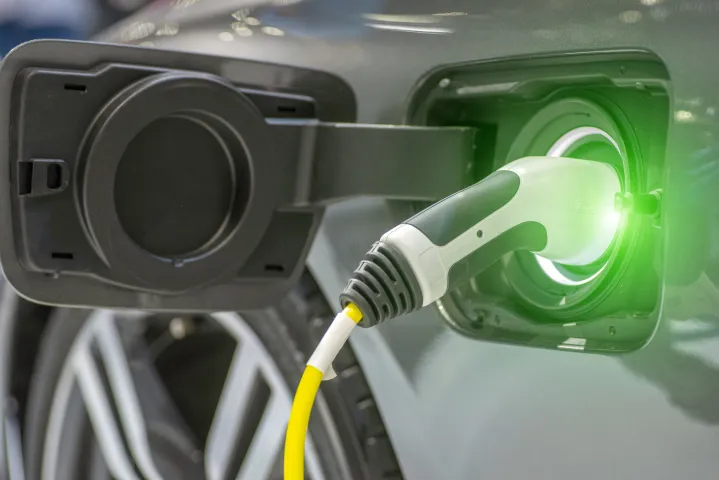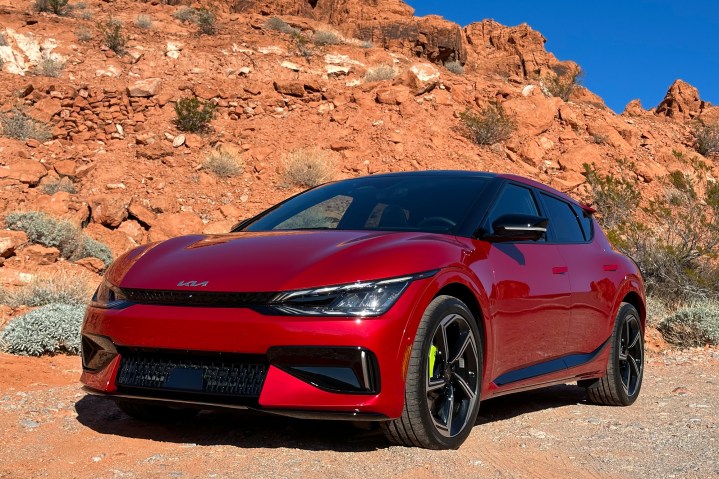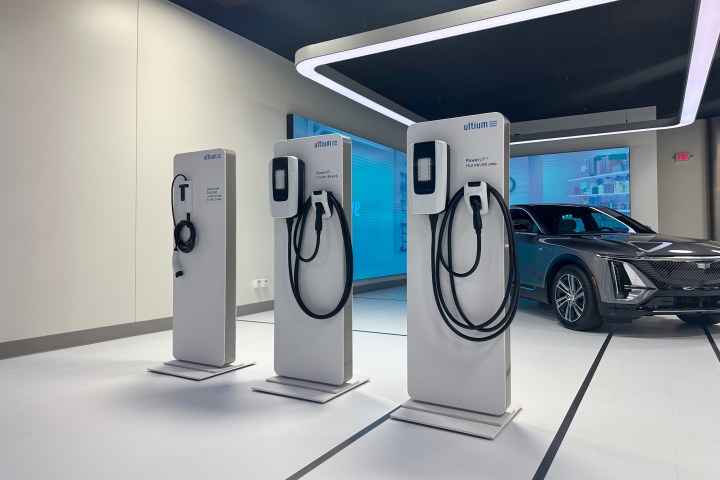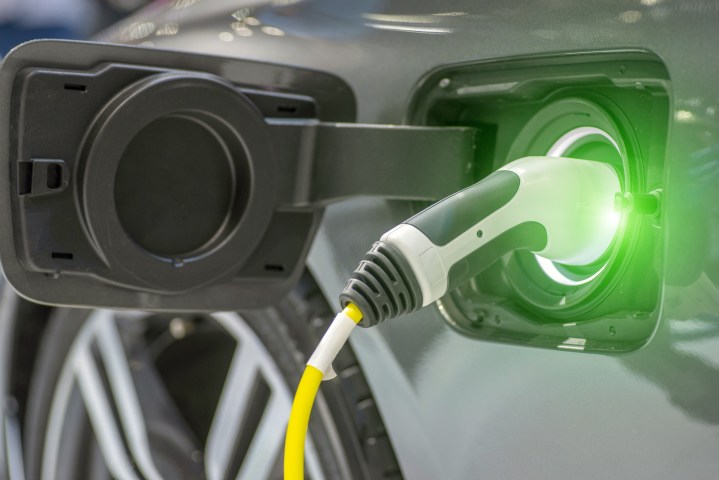
EVs are on the rise. With awesome new models finally rolling out and charging networks rapidly expanding, it feels like we’re at the tipping point of electric cars being as mainstream as non-electric vehicles. But with a whole new type of vehicle come new challenges. One challenge is adapting to charging times. Another is paying closer to attention to range. And another, as some drivers are finding out, has to do with electric car warranties.
Turns out, the warranty that comes with electric cars isn’t necessarily quite the same as the one that you might get with your non-electric car. If you really think about it, that’s probably not all that surprising — after all, while they can look the same, electric cars have a completely different makeup under the hood compared to their gas-powered cousins. But understanding an EV warranty could be the difference between winding up having to pay thousands for a battery replacement, or getting one repaired on the house.
It’s not all new
Before diving into things like battery warranties, it’s worth doing a quick primer on car warranties in general. EVs and internal combustion engine (ICE) vehicles usually come with two different warranties — at least when they’re bought new. First, there’s the basic warranty (also known as bumper-to-bumper warranty), which covers every part of a car except for basic maintenance, usually for up to three years or 36,000 miles.

Second is a powertrain warranty — which, as you might expect, only covers the car’s powertrain. This warranty extends longer than the basic warranty. Both ICE vehicles and EVs can come with a powertrain warranty, however they’ll cover completely different things depending on the type of car that you have. On an ICE vehicle, this powertrain warranty covers a car’s engine, transmission, and drivetrain — three parts that can be very expensive to repair or replace. On an EV, however, the powertrain warranty instead usually covers the car’s battery and drive units, or motors.
The basic warranty is usually pretty much all-inclusive, and doesn’t cost extra for new car purchases. And, as you might be able to tell, this basic warranty can be similar for both ICE and electric vehicles, depending on what it’s used to cover. Plenty of interior components are the same on both kinds of vehicles, including things like braking systems and steering components. Basic warranties will cover these things regardless of the kind of car you have.

“Though these warranties will vary from brand to brand, typically they’ll cover all of the same things on EVs that a brand’s ICE warranty covers, including bumper-to-bumper coverage over a set amount of miles or time,” said David Undercoffler, editor-in-chief for Autolist, in an interview with Digital Trends. “However, because EVs have far fewer moving parts, there are technically fewer parts that an EV warranty will need to cover than on a gas vehicle.”
It’s all about the battery
Because of how much focus there is on things like range, and the costs associated with repairing or replacing an electric car’s battery, the most important aspect of an EV’s warranty is its battery warranty, which is part of the powertrain warranty.
“Electric vehicles come with a powertrain warranty, which covers the battery,” said Randy Barone, vice president of business development at ACV. “These batteries are the most valuable part of the vehicle, with some costing over $30,000.”
Battery warranties can vary from manufacturer to manufacturer, which can make understanding how they work a little confusing. Some, thankfully, offer a pretty good battery warranty, with Tesla covering up to eight years or 120,000 miles. However, others have a lower warranty. Thankfully, the government has stepped in — and requires automakers to offer an eight-year, 100,000-mile warranty. Again, some go further, but at least there are some minimum requirements in place.

But even if your EV’s battery is still under warranty, that doesn’t mean that you’ll be able to get a replacement or repair in any situation.
“Some will just cover the replacement cost in the event of a total failure of that battery. Other brands cover this and promise that the battery will hold a certain threshold of charge for the length of the warranty,” said Undercoffler. “For example, Kia and Tesla’s battery warranties both promise that the battery will hold 70% of its original charge for the length of the warranty.”
So what does that mean? It means that even if you find that your EV battery is starting to decrease in capacity, the manufacturer is unlikely to replace or repair the battery. Losing 30% of your battery capacity isn’t nothing — it means that your car could go from offering around 300 miles of range to offering 210 miles, and you still won’t qualify for a battery repair.
Things get complicated when the vehicle is used, too. Not all battery warranties can be transferred to a new owner, and that means that if you buy your EV used, you may not have a battery warranty at all, regardless of how much it has been used. It’s worth double-checking that you’ll get a battery warranty if you’re buying a used EV. Also, keep in mind that when you purchase an EV from an owner, they and you will have to contact the manufacturer to transfer the warranty.
How to void an EV battery warranty
As if EV battery warranties weren’t confusing enough, there are plenty of ways they can be voided, too — and while some of these ways seem obvious, some aren’t quite as straightforward. As you might expect, the ways you could possibly void an EV warranty vary from carmaker to carmaker, but perhaps more importantly, they also vary from car to car.

Much of that boils down to using a vehicle in a way it wasn’t necessarily intended to be used. You won’t void an F-150 Lightning’s warranty by using it to tow, but you sure could if you use your Mustang Mach-E to tow. In many cases, you’ll void the warranty of your EV’s battery if you dismantle or open up the battery in any way. And, if you use an electric car to power your home, you’re likely to void it too.
It’s worth taking a look at your EV battery warranty to get an idea of what could void that warranty. After all, you don’t want to be caught without a warranty when you need one.
Big brands
So, now that you have an idea of what’s involved with EV battery warranties, what do the biggest EV brands offer? Here’s a look at some of the most popular EV manufacturers.
Tesla
Tesla offers at least an eight-year, 100,000-mile battery warranty, with a guarantee of 70% battery capacity over that warranty. For some vehicles, that can range up to an eight-year, 150,000-mile warranty. This warranty is transferrable, so owners of pre-owned Tesla vehicles can still take advantage of it.
Hyundai and Kia
Hyundai Motor Group (including Hyundai, Kia, and Genesis) offers a 10-year, 100,000-mile battery warranty on electric cars, with a 70% battery capacity guarantee. This warranty is transferrable to additional owners.
Ford
Ford offers an eight-year, 100,000-mile battery warranty, with a guarantee that the battery will retain 70% of its capacity during this period. This warranty is transferrable to additional owners.
Volkswagen
Volkswagen offers an eight-year, 100,000-mile EV battery warranty, with a guarantee of 70% battery capacity. This warranty is transferrable to second owners.
BMW
BMW offers an eight-year, 100,000-mile battery warranty, with a 70% battery capacity guarantee. This warranty is transferrable to second owners.
Lucid

Lucid offers an eight-year, 100,000-mile battery warranty, with a 70% battery capacity guarantee during that warranty. This warranty is transferrable to second owners.
Rivian
Rivian offers at least an impressive eight-year, 150,000 battery warranty on some vehicles, or up to 175,000 miles on others, with a 70% capacity guarantee. The warranty can be transferred to additional owners.
Some parting advice
Too long, didn’t read? Here are the basics. There are two types of EV warranties — basic warranties and powertrain (including battery) warranties. Battery warranties vary from manufacturer to manufacturer, but cover at least eight years or 100,000 miles in the U.S., and also usually cover replacement if there’s a defect or the battery capacity falls below 70%. However, you’ll have to be careful not to void the warranty by using the car in ways it wasn’t intended to be used, and you’ll have to transfer the warranty to yourself if you buy the car used from its first owner.
Above all, make sure to read the terms of a car’s battery warranty before you buy one. It can make a huge difference down the road, as the battery starts to wear out.
Editors’ Recommendations
Services Marketplace – Listings, Bookings & Reviews
